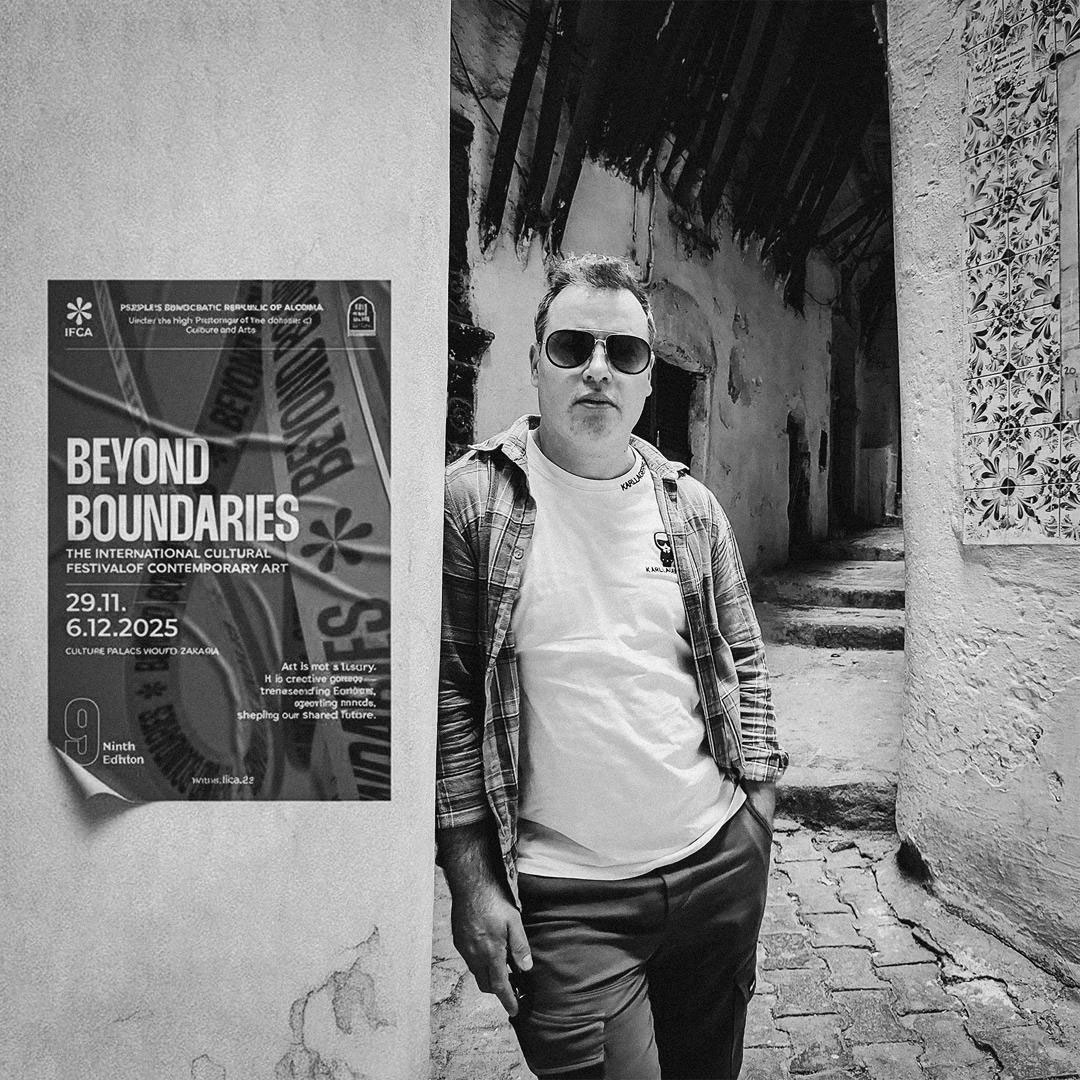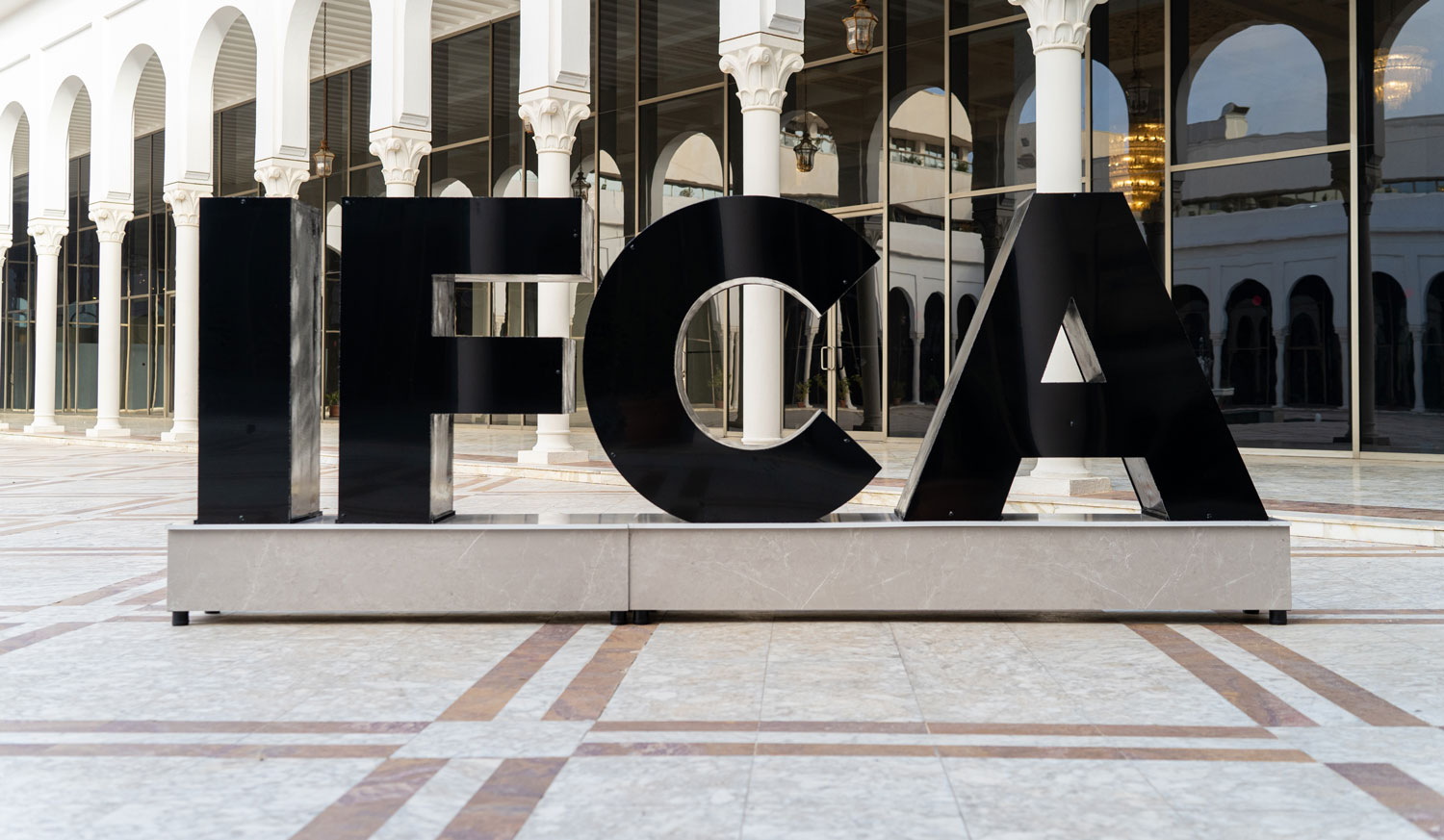Building bridges and breaking boundaries through art
Hamza Bounoua, curator of Algeria’s International Festival of Contemporary Art, speaks to Ahmad Minkara about what visitors can expect from the 9th edition of an event that is rapidly reaffirming its standing on the international art calendar.

Hamza Bounoua, curator of the International Cultural Festival of Contemporary Art
The 9th edition of the International Festival of Contemporary Art is fast approaching. As its curator, what can you tell us about the festival’s journey from its early days to 2025?
The International Festival of Contemporary Art (IFCA) was founded in 2008 by the Algerian Ministry of Culture and Arts with the aim of supporting visual artists, especially emerging ones, and promoting contemporary art. One of its key objectives has always been to help Algerian artists forge connections with their international peers.
I was appointed curator in 2024 with a remit to come up with a fresh vision for the 8th festival, which marked a new beginning for the event. I introduced fundamental changes to the way the festival operates, redefining its structure, focus, and partnerships.
IFCA 2024 was deemed a huge success; we achieved the highest level of international participation since the festival began, bringing more than 70 international artists to Algeria, with more than 39 countries participating.
What’s the message behind the theme for this year’s festival, ‘Beyond Boundaries’?
The festival’s title ‘Beyond Boundaries’ reflects a vision for the visual contemporary arts scene that transcends geography and identity. We want to invite audiences to reflect on the many different types of boundaries that shape our world - geographical, cultural, emotional and artistic- and to explore what lies beyond them.
In today’s troubled times of conflict, violence, humanitarian disaster and discrimination, the need for alternative tools to drive positive change is more pressing than ever. And we know that art has the potential to act as a powerful catalyst, offering a means to overcome divisions and restore balance. We want this year’s festival to act as a powerful reminder that contemporary art can create bridges of understanding and open spaces for dialogue and shared experience.
Equally importantly, ‘Beyond Boundaries’ as a theme encourages openness, curiosity and collaboration which we are striving for. It questions how art can expand perception, remove limitations and propose new ways of coexisting.

This year's edition takes place from November 29-December 6
Algeria benefits from a strategic location in the Maghreb, marked by several borders. Do you have plans to leverage its prime geographical position?
Algeria is ideally situated to play the role of international cultural hub, which aligns with the IFCA’s broader mission to position the country as a vibrant meeting point where art moves freely beyond boundaries.
Through the festival, we’re working to position Algeria as a cultural bridge connecting Africa, the Middle East, Europe and the Mediterranean. Our strategy is based on collaboration and cultural exchange: hosting international artists, supporting local talents and creating spaces where thought, beauty and experience converge. In this way, the festival itself becomes a platform to embrace and celebrate global creative diversity on Algerian soil.
Of course, it’s a work in progress. Building a cultural economy requires medium- to long-term commitment, but the festival contributes in a big way to these efforts, giving them an annual rhythm. The Algerian Ministry of Culture and Arts actively supports local talent while inviting artists to visit from around the world. Within the festival’s organising committee, our role is to facilitate communication and exchange between local and international players and strengthen cooperation, creating the conditions for the market to grow naturally. I truly believe that with commitment and resolve, we can expand the horizons for our visual creatives, offering them sustainable opportunities and strengthening their presence globally.
Art’s potential as a soft power is a popular topic of debate. How does this concept slot into the IFCA’s mission?
It’s so important for people to view art not as a cultural luxury, but as an essential tool for thought, analysis and resistance. As a soft power, art shapes outlooks and prompts us to rethink our beliefs on issues ranging from racism to marginalisation.
Art has the ability to transcend borders and unite people, providing them with a means to communicate and understand one another, irrespective of cultural and political differences. This is particularly vital in these challenging times. You could say that empowering artists to contribute to building more aware and open societies has never mattered more.
Algeria’s cultural identity is multilayered and multifaceted, and the IFCA offers a platform to highlight this rich tapestry globally. Through the festival, we’re affirming that art is not merely a means of expression, but acts as a bridge that connects us despite our differences. It has the power to help us imagine new ways of coexisting.

Visitors at the 8th edition of the festival in 2024
You have introduced galleries to this year’s festival for the first time. What prompted this decision?
Including galleries this year symbolises a major evolution for the festival. In previous editions, the focus was primarily on individual artists and their direct engagement with audiences. This year, we wanted to broaden the vision by involving galleries as institutional partners.
Galleries play a vital role in supporting artists, providing visibility, professional representation and access to networks that extend far beyond a festival’s duration. The participation of Algerian galleries alongside international ones will help strengthen the art market in the medium term. No matter how rich artistic creation is, artists still need to promote and sell their works, not just exhibit them. An artist’s value grows when their works are collected and represented worldwide.
This decision aligns with our broader ambition to build a sustainable ecosystem for contemporary art in Algeria and foster stronger connections between the local and international art scenes. It also dovetails with the festival’s natural development from a purely cultural celebration to one that also has an important economic dimension.
The IFCA platforms are using English as their second language for the first time in 2025. How did you arrive at this decision?
English is the most widely used language in international art communication, utilised by artists, curators and critics worldwide. Including our content in English therefore enables us to maximise our reach which is a key aim. Our choice is driven by a professional vision aimed at fostering cultural exchange and making Algerian art and cultural initiatives accessible and available to as broad a global audience as possible.
The 9th International Festival of Contemporary Art (IFCA) will take place from November 29 – December 6, 2025 at Culture Palace Moufdi Zakaria, Algiers, Algeria. For more information, visit ifca.dz.